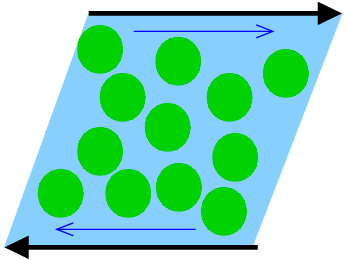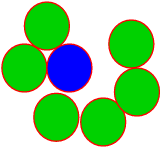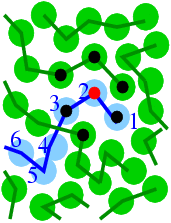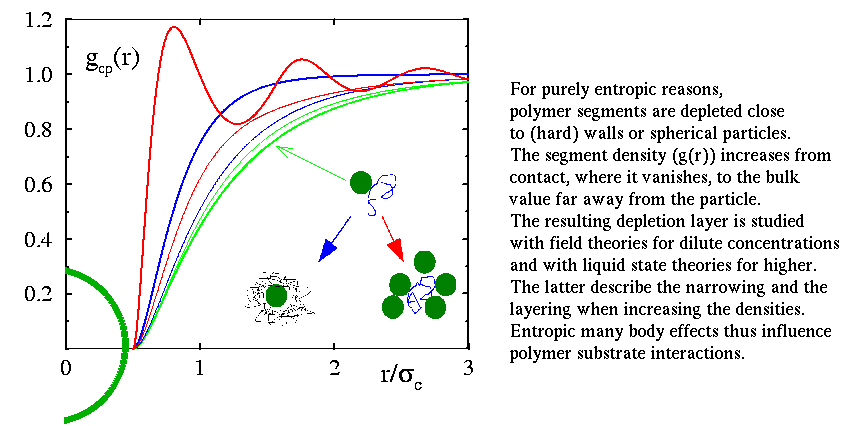 |
Research Topics | 
|
 |
Research Topics | 
|
The studied systems range from low-molecular glass forming liquids to (nano-)
particle dispersions, colloidal gels, entangled polymer melts and dense
solutions of bio-macromolecules.
The presently studied systems include:
Non-linear rheology of colloidal dispersions
We develop a first-principles approach to the steady state properties of sheared dense dispersions. Specifically the effect of shear on the internal dynamics is studied numerically and analytically. Open questions concern the nature of the stationary states far from equilibrium, and the existence and universal aspects of non-equilibrium transitions from fluid to solid like behaviour. Results for the non-linear flow properties which will clarify rheological properties of complex fluids that are studied in model systems, and are also of technological interest (e.g. dispersion paints). and phase behaviour of macromolecular liquids
Transport properties of macromolecular thin films at decorated surfaces
A fundamental understanding of the transport of macromolecules close to surfaces is required for the development of "nano-fluidic" devices, and for using "micro"- or nano-rheological mesurement techniques to study soft biological matter. We start from many body level descriptions of soft matterials (Liouville or Smoluchowski equations) and coarse-grain from the microscopic to the macroscopic level. This leads to hydrodynamic transport equations and a coupling of conserved or symmetry-broken fields across the interface. For viscoelastic materials, novel effects arise from the generalized frequency and length scale dependent parameters entering the boundary conditions.

Aggregation phenomena in nano-particle dispersions
The purpose of the project is to gain a better understanding of colloidal gels formed by weak adhesion. Such particle gels are observed in a wide variety of solutions, including of proteins in solutions prepared to grow protein crystals. As gelation prevents successful crystallisation, means of controling it are necessary for the determination of the structure and thus functional mechanisms of a growing number of proteins.
Structure and phase behaviour of macromolecular liquids
The equilibrium structure and thermodynamics of complex fluids containing polymers is studied, especially of solutions and mixtures containing colloidal or other mesoscopic particles. These systems are widely considered model-systems for a variety of food products and biological materials, and an understanding of e.g. the factors influencing long-time stability of the solutions is highly desirable.

Most polymeric materials find application as amorphous solids. Yet, a microscopic understanding of the transport mechanisms which are frozen-in in the glassy state of polymers is still lacking. We build upon recent progress achieved for low-molecular glasses and incorporate polymer connectivity and conformational degrees of freedom.

In order to control the interactions of biological structures with technological materials, a better understanding of the packing of biological macromolecules at interfaces and in constrained geometries is desirable. The density profiles of macromolecular fluids at surfaces are of interest because they determine the effective properties of the coated surfaces but also the equilibrium and transport properties of the film.